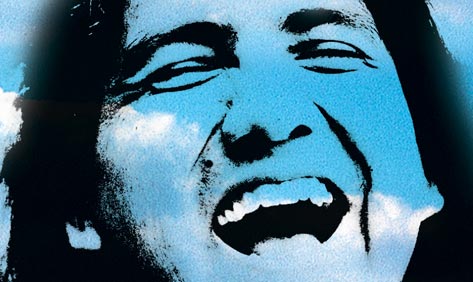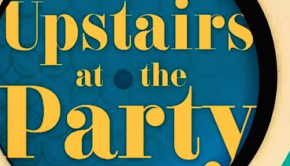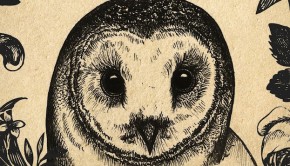Blasphemy by Sherman Alexie
A bold and irreverent observer of life among Native Americans in the Pacific Northwest, the daring, versatile, funny, and outrageous Alexie showcases all his talents in his newest collection, Blasphemy, where he unites fifteen beloved classics with fifteen new stories in one sweeping anthology for devoted fans and first-time readers. Included here are some of his most esteemed tales, including “”What You Pawn I Will Redeem,”" “”This is What it Means to Say Phoenix, Arizona,”" “”The Toughest Indian in the World,”" and “”War Dances.”
The Absolutely True Diary of a Part-time Indian by Sherman Alexie.
John Burnside, The Guardian
“Throughout, Alexie’s Indians are waiting to be treated as “eccentric and complicated”, rather than as stereotypes, not only by the whites they encounter, but also by their fellow Indians – and by themselves. Yet beneath this desire to be seen for what they are, they continue to bear the grief and shame of having endured genocide and ecological disaster. “If you had broken into my heart,” one Spokane man says, “you could have looked inside and seen the thin white skeletons of one thousand salmon.”“
Leyla Sanai, The Independent
“Alexie has a wonderful ear for snappy vernacular, pithy dialogue and mordant humour. In “Cry, Cry, Cry”, a man tries to retain loyalty towards his cousin, who has fallen into drugs and crime. Alexie injects wit into even his darkest stories: here, Indian males try to emulate gun-toting black gangs. Instead of drive-by shootings, they engage in “drive-by cursings”.“
Tom Cox, The Observer
“Blasphemy, which includes 16 new Alexie tales and some of his best from the past, is roughly where the sensitive testosterone swagger of Junot Diaz meets the arch, laconic eye of Lorrie Moore. Alexie writes crushingly about pungent rural minimum wage work and tribal acceptance, but no less affectingly about life in the city – particularly in “Gentrification”, as funny and heartbreaking a story about the disposal of a mattress as you’ll ever read, and “Night People”, ostensibly about a sexually charged encounter between two insomniacs but arguably about the failing sex life of the male party, who marvels at “those strange and lucky people whose engines are not completely powered by various bodily fluids”.”
Erica Wagner,
“In these stories are people who know something important has been stolen from them; and that they are very unlikely to get it back. But they are not in need of sympathy: what does that solve, for anyone? “Being Indian, man,” a white hippie girl says, “that has to be a tough gig. The way we treated you and stuff. We broke your hearts, man. How do you deal with all that pain?” With mockery, real feeling and vivid, sharp observations of 21st-century life.“
Thomas Hodgkinson, The Spectator
“The weakest stories here are the shortest, like the two-page ‘Breakfast’ (the dead father theme again), and the three-page ‘Fame’ (a guy is rejected by a girl for being fat). Non-events both. The strongest are the longest, which find room to go from serious to funny and back again, without recourse to cheap tricks. “
Francesca Angelini, The Sunday Times
“The anthology offers a remarkable insight into the dissonance of contemporary Native American life, and what saves it from being a body of unrelievedly bleak, politically charged works is the sardonic humour Alexie injects into his tales. But the subject matter and the deadpan prose leave the reader longing for some variation in both style and theme.“
Jess Row, The New York Times
“Alexie began writing in an era dominated by the dirty realists — the unholy trinity of Raymond Carver, Tobias Wolff and Richard Ford — and his work shares with theirs a certain bluntness and rawness, an aversion to sensory description, nuance or context, and an overriding interest in (some might say obsession with) male solitude as a fount of life lessons … The most disheartening aspect of this collection is the fact that, over 20 years, the jokes themselves haven’t changed. Alexie’s narrators and protagonists still see themselves as solitary outcasts on the margins of reservation life.“
OMNISCORE:












